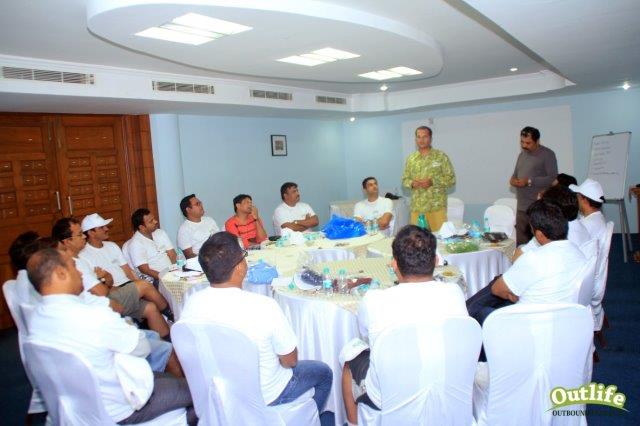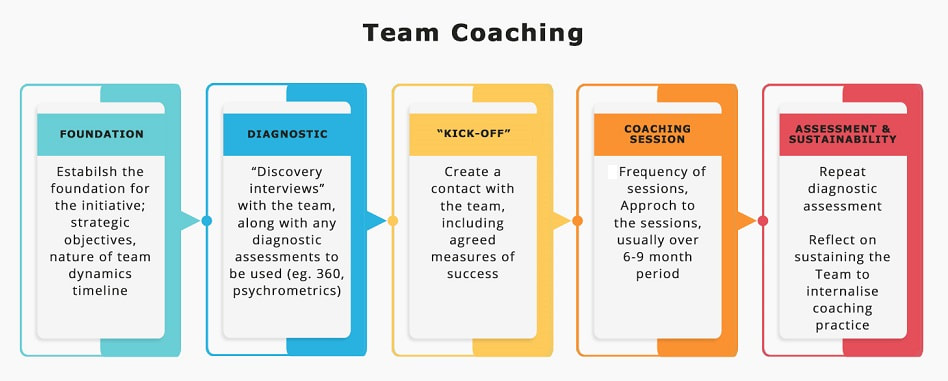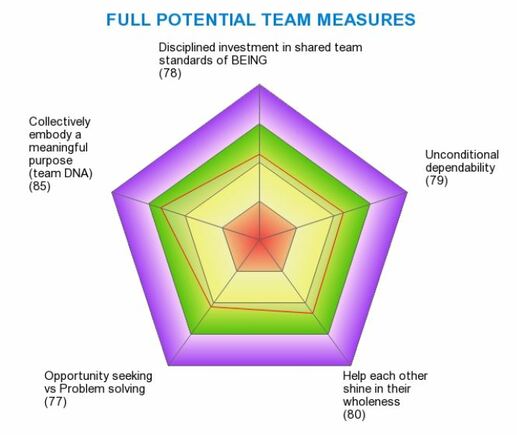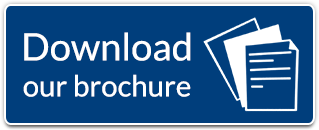Team Coaching | Team Performance Coaching
What is Team Coaching?
Team coaching is a process where a team coach works with a established team by clarifying their vision, mission and improving the external and internal relationships and resources. Team Coaching happens typically in a professional or organizational setting, to improve the performance and effectiveness of the team as a whole. Coaching a Team may also involve facilitating discussions, identifying strengths and weaknesses, setting goals, and helping team members work together more effectively. The team coach works to build a supportive and collaborative team culture, enhance communication, and develop individual and collective skills to achieve the teams and organizations goals.
Team coaching enables organisations to foster transformation in their teams performance & results. Unlike team building workshops that are one-off events, team coaching enables teams to identify and resolve their challenges over a period lasting over several months, resulting in deeper learning & long-term sustainable performance and ongoing development.
Team coaching occurs in the context of actual meetings and real work sessions where the coach gets to works with the team on live, real-time interventions. These interventions bring awareness of how the team behaves in the here and now moments and how these behaviors affect their performance.
With this awareness, the team makes specific adjustments in real-time to build on their strengths or improve on weaknesses. These Adjustments are motivated by and directed toward achieving important results for the team and the organization.
How Team Coaching Works?
In Team Coaching, the Coach honors that the Team has the expertise, creativity, and capability to find their solutions and approaches towards team excellence. The Team Coach acts as a Guide on the Side to leverage the Team's potential. The Team Coach uses a combination of patience, insight, questioning, and care to help the Team find the internal and external resources required for their overall team excellence.
Team coaching is a process where a team coach works with a established team by clarifying their vision, mission and improving the external and internal relationships and resources. Team Coaching happens typically in a professional or organizational setting, to improve the performance and effectiveness of the team as a whole. Coaching a Team may also involve facilitating discussions, identifying strengths and weaknesses, setting goals, and helping team members work together more effectively. The team coach works to build a supportive and collaborative team culture, enhance communication, and develop individual and collective skills to achieve the teams and organizations goals.
Team coaching enables organisations to foster transformation in their teams performance & results. Unlike team building workshops that are one-off events, team coaching enables teams to identify and resolve their challenges over a period lasting over several months, resulting in deeper learning & long-term sustainable performance and ongoing development.
Team coaching occurs in the context of actual meetings and real work sessions where the coach gets to works with the team on live, real-time interventions. These interventions bring awareness of how the team behaves in the here and now moments and how these behaviors affect their performance.
With this awareness, the team makes specific adjustments in real-time to build on their strengths or improve on weaknesses. These Adjustments are motivated by and directed toward achieving important results for the team and the organization.
How Team Coaching Works?
In Team Coaching, the Coach honors that the Team has the expertise, creativity, and capability to find their solutions and approaches towards team excellence. The Team Coach acts as a Guide on the Side to leverage the Team's potential. The Team Coach uses a combination of patience, insight, questioning, and care to help the Team find the internal and external resources required for their overall team excellence.
A Cohesive team combines high commitment, intense connection, a shared sense of purpose and mission. Team performance coaching helps members clarify the team's primary purpose, goals, objectives, and the role of each member in the team and then furthers cohesion by looking at team dynamics and relationships to achieve high-performing results.
Need for Team Coaching
Team Coaching is beneficial in situations where:
- When a team merges with another team or when there is a significant organizational change
- When a new leader or new team member joins the team
- When conflicts within the team need to be harnessed
- When team efficiency and productivity need to be increased
- When long term projects lead to burnout and stress in the team.
- When commitment gets low, and the team is not meeting its goals.
- When embarking on new and challenging projects
- To deepen understanding and value of inclusion and diversity
Essentials of Team Coaching
The essentials of team coaching include the team exhibiting the following values and behaviors.
- Clear Purpose: A common goal and understanding of the team's purpose and objectives.
- Trust: A supportive, open and honest team environment where members feel vulnerable and comfortable sharing their thoughts and ideas.
- Communication: Effective and transparent communication between team members can include active listening, feedback, and open dialogue.
- Collaboration: A willingness to work together and share responsibilities, making decisions that are in the team's best interest.
- Diversity: Recognition and respect for individual differences, strengths and weaknesses, and the contributions of each team member.
- Continuous Improvement: Regular reflection and evaluation of the team's performance and a commitment to continuous improvements.
- Goal-Oriented: A focus on specific, measurable, achievable, relevant, and time-bound (SMART) goals and a plan for reaching those goals.
- Leadership: Shared leadership, power and decision-making responsibility among team members, with a coach who provides guidance and support.
Our Approach to Team Coaching
|
An essential step at the beginning of any team coaching is to ensure that the team is prepared to be coached.
Team Coaching readiness can be determined based on the following aspects.
If Team Coaching readiness is not there then its good time to revisit the purpose and mission of the Team, and if necessary, support the Team to create a new Team Plan with objectives in the areas of strategy, finance, marketing, operations, customer service, stakeholder management, and other business functions. The approach also depends on what the stated needs of the Team are, but getting the Team to focus on some essential functions of the Team is a good starting point. We would also look at Behavior Coaching for "behavioral skills development" by focusing on areas of the Team such as improved teamwork, team relationship, team morale, enhanced communication skills, or increased engagement from staff into the broader Team. Team Coaching works with the Team as a systemic approach instead of a collection of individuals. It is an ongoing process to sustain change and performance over time instead of a one-off Team building event. We have over a decade of team coaching experience and have worked with companies in India and abroad. Our approach with team coaching starts with a strong alignment to the organisational vision and strategy and how the Team plans to work towards that. Metrics for Team CoachingSome of the standard metrics for Team based coaching would be as follows.
|
Contact Us |
Role of the Team Coach
A team coach's primary objective is to facilitate team learning as a whole. The coach employs ways for team members to gain insight and practice different behaviors in the team setting and its adopted goals.
Team Coaching takes a Systems-Thinking Perspective and is a long-term intervention. The team coach partners with the team in their everyday work, challenges existing ways of working, tests assumptions, introduces new ideas, perspectives, and opportunities to improve overall team performance.
A Team Coach works within the complex and ambiguous organizational dynamics in which teams operate. The primary focus of team coaching is always the improvement of the overall team's effectiveness.
Team Coaching takes a Systems-Thinking Perspective and is a long-term intervention. The team coach partners with the team in their everyday work, challenges existing ways of working, tests assumptions, introduces new ideas, perspectives, and opportunities to improve overall team performance.
A Team Coach works within the complex and ambiguous organizational dynamics in which teams operate. The primary focus of team coaching is always the improvement of the overall team's effectiveness.
Team Coaching Process
Our Team coaching involves a Certified Team coach working with a small group of leaders/team members, usually in the group size of 6-15 members a period of time. Our Coaches are ICF and EMCC certified coaches who bring over two decades of industry experience and a decade of coaching experience.
Team coaching gives members of the team various opportunities to stretch beyond their current capabilities. By partnering with the team, the coach can introduce new ideas and see opportunities to improve team performance in the context of its everyday work challenges.
Below are the various phases in the team coaching approach we follow.
Team coaching gives members of the team various opportunities to stretch beyond their current capabilities. By partnering with the team, the coach can introduce new ideas and see opportunities to improve team performance in the context of its everyday work challenges.
Below are the various phases in the team coaching approach we follow.
1. Team Coaching Foundation
This is the contracting phase and involves discussion with team leader/\ or sponsor to understand why team coaching is required and why now. In this initial phase the works involves establishing a foundation for detailing the strategic objectives, nature of team dynamics, timeline, number of participants, etc.
2. Diagnosing Phase
This is the contracting phase and involves discussion with team leader/\ or sponsor to understand why team coaching is required and why now. In this initial phase the works involves establishing a foundation for detailing the strategic objectives, nature of team dynamics, timeline, number of participants, etc.
2. Diagnosing Phase
- Diagnosis is made in a one to one confidential meetings with Team members to find out the team's current state, what works well about the team, what does not work well, and why. To establish their ideas on approaches that will work for them and how they could be measured.
- Here we may also use a 360 assessment tool or use Human Potential Assessment / Behavioral Assessment to assess both Individual and Team Potential and Behaviors.
For assessment of personality and behavior assessments, we use instruments like / DISC / Insights. These psychometric tools improve the Team's understanding of its dynamics. We also use a 360 survey of team members as a potentially valuable starting point to help people understand themselves and work with others.
3. Kick-off Phase
4. Ongoing Coaching sessions Phase
5. Assessment and sustainability Phase
3. Kick-off Phase
- Focus on the broader organisational aspect, as well as the team challenge
- Create a Team contract, including the metrics and assessment for the programme (individual and Team)
- Determine areas of focus and commitment for the sessions.
4. Ongoing Coaching sessions Phase
- Group size – 8 to 10 is the ideal size for a team, with a maximum of up to 15
- Frequency – around once monthly for 3-6 hours.
- Duration – often approximately 6 -12 months, though can be shorter or longer
- Decision on how to run the sessions in terms of the level of formality.
- The Action Learning approach focused on improving the questioning and reflection of team members.
5. Assessment and sustainability Phase
- Here we review the "distance traveled" of the Team coaching project for the whole Team and its individuals. The most potent way to do this is to repeat the baseline assessments, whether a Human Potential Model or 360 or psychometric.
- It's essential to look at ways beyond the Team Coaching project that the reflective practice of the Team is sustained, e.g., regular reviews using Learning set principles, ongoing peer coaching, etc.
Benefits of Team Coaching
Team coaching can provide many benefits to the individual, the team, and the organization. Depending on the set-up of your team coaching environment, the needs and goals of your organization, the following benefits could be realized.
Benefits to the individual.
Benefits to the team.
Benefits to the organization.
- Establishes clear expectations and goals: When clear expectations and plans are established for the team, everyone in the team knows what they are working towards.
- Develops a positive team culture: Team members establish a positive culture that promotes cooperation, collaboration, and open communication.
- Encourages personal growth and development: Opportunities for team members to learn and grow professionally and personally are supported.
- Provides constructive feedback: Regular feedback to team members helps them understand their strengths and weaknesses and how they can continuously improve.
- Flexibility and adaptability: Being flexible and adaptable to team or project changes brings openness to new ideas and perspectives.
- Empowers your team: Team members make decisions, take ownership of their work, and feel confident in their abilities.
- Encourages open communication: Open communication provides a platform for team members to share their thoughts, opinions, and ideas.
- Creates Collective success: Builds morale and maintains motivation within the team.
Benefits to the individual.
- Become more Self Aware
- Learn about other team members in a psychologically safe environment
- Share perspectives in a psychologically safe environment
- Be more engaged at work
- Be part of a winning team
Benefits to the team.
- Establish a team charter
- Create an action plan
- Ensure Team commitment
- Maintain Team accountability
- Showcase individual strengths within the team
- Resolve conflicts effectively
- Collaborate towards a common goal
- Achieve Team Results
Benefits to the organization.
- Less expensive than one-on-one coaching
- Experience effective teams that meet their goals
- Move the company forward
- Increase employee retention
- Achieve Organisational Goals.
FAQ on team coaching:
What is team coaching?
Team coaching is a process where a certified team coach works with a members of a team to help them improve their performance, achieve their goals, and develop their skills and abilities.
Why is team coaching important?
Team coaching is essential because it can help build a more robust and effective team, enhance communication and collaboration, and increase motivation and drive among team members to achieve their team and organizational goals.
How does team coaching work?
Team coaching typically involves a team coach working with a established team to assess their strengths and weaknesses, set goals, develop action plans, and provide support and guidance that is in line with the teams purpose and organizations vision.
What are the benefits of team coaching?
Benefits of team coaching include improved team performance, better communication and collaboration, enhanced problem-solving skills, increased motivation, satisfaction and improved team dynamics.
What are the steps in a typical team coaching process?
The typical steps in a team coaching process include inquiry, assessment, goal-setting and establish metrics, action planning, implementation, and measuring results.
What skills and qualities should a team coach have?
A good team coach should have a good presence, strong communication and interpersonal skills, be knowledgeable and experienced in Team coaching areas, and be able to facilitate group discussions and problem-solving effectively.
Team coaching is a process where a certified team coach works with a members of a team to help them improve their performance, achieve their goals, and develop their skills and abilities.
Why is team coaching important?
Team coaching is essential because it can help build a more robust and effective team, enhance communication and collaboration, and increase motivation and drive among team members to achieve their team and organizational goals.
How does team coaching work?
Team coaching typically involves a team coach working with a established team to assess their strengths and weaknesses, set goals, develop action plans, and provide support and guidance that is in line with the teams purpose and organizations vision.
What are the benefits of team coaching?
Benefits of team coaching include improved team performance, better communication and collaboration, enhanced problem-solving skills, increased motivation, satisfaction and improved team dynamics.
What are the steps in a typical team coaching process?
The typical steps in a team coaching process include inquiry, assessment, goal-setting and establish metrics, action planning, implementation, and measuring results.
What skills and qualities should a team coach have?
A good team coach should have a good presence, strong communication and interpersonal skills, be knowledgeable and experienced in Team coaching areas, and be able to facilitate group discussions and problem-solving effectively.
Getting Started with Team Coaching
If your company faces increasing conflict, people working in silos, poor communication, or high turnover, team performance coaching can help you create a high-performing team. Many teams can benefit from a team coaching process that can include Leadership Teams, Departmental Teams, Project Teams, etc.
Contact us to discuss your team's coaching needs and offer you a free approach note detailing the steps and costs involved. Post an initial assessment and agreement; we will assign an ICF / EMCC Certified Team Coach who will work with the team to help the team achieve their metrics.
Contact us to discuss your team's coaching needs and offer you a free approach note detailing the steps and costs involved. Post an initial assessment and agreement; we will assign an ICF / EMCC Certified Team Coach who will work with the team to help the team achieve their metrics.




